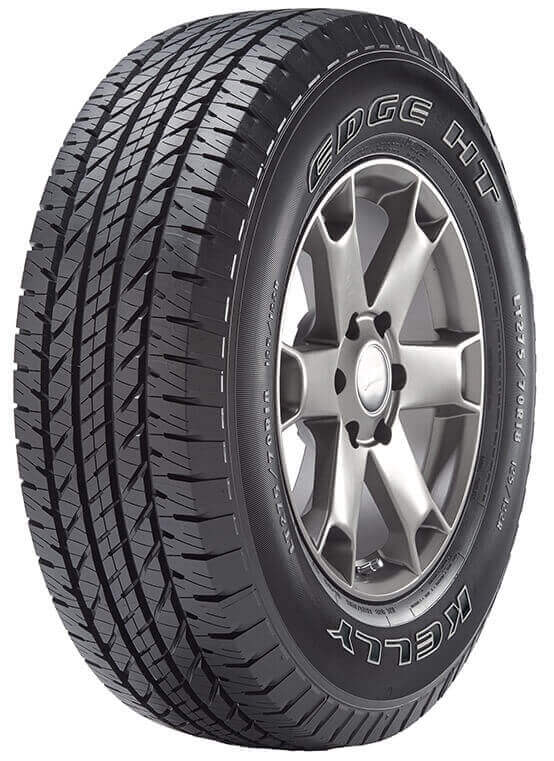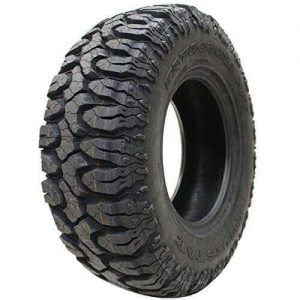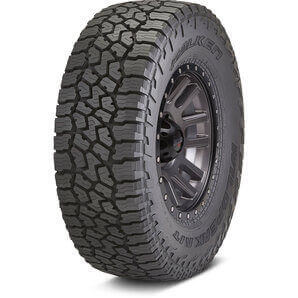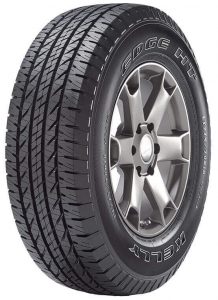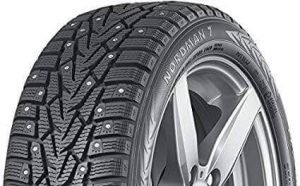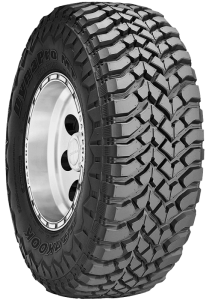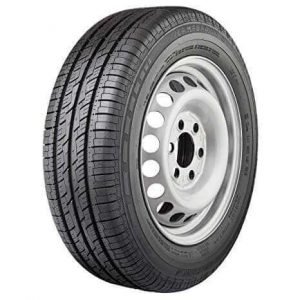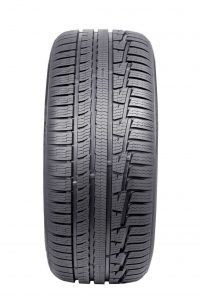Types of car tires
Tires are built to serve different needs and overcome constantly changing terrain and weather conditions.
As a result, the market is littered with a ton of types of tires, further complicating the tire purchase process for beginners.
Below we take an in-depth look at the multitude of tire types to help you decide their suitability for your driving needs depending on their features.
Types of automobile tires
Here are the main tire types explained:
(i) Mud terrain tires
The presence of more rugged tread patterns, mud ejectors, and stress resistance (to prevent cuts and punctures) make mud-terrain tires perfect when detouring off the road.
Indeed, no other tire handles tough surfaces such as deep mud better than these types of tires especially in trucks and SUVs that spend most of their time off-road.
The major weakness of mud tires is their bumpier rides on pavements.
You should also be prepared for random spinning/skidding when on wet roads.
(ii) All terrain
All-terrain tires, popularly known as A/T tires, are probably the most versatile type of rubber hoops you will meet out there.
Their open-tread design and strengthened sidewalls give them extra traction required on country roads while providing a restful ride on other terrains such as highways and city roads.
The tires are a sure bet if you tend to tackle nearly all terrains in fairly even proportions because their flexible grip is reassuring whether off-road or on-road.
The only thing we dislike about them is their higher noise levels than conventional all-season tires (up next) because of their rugged tread design.
(iii) All season tires
All-season tires are a special kind of vehicle tire built to give a balanced performance in myriad conditions including heavy downpours, thin sheets of snow, puddles, and more.
They also quite well in warm weather too and are intended to keep you on the road all year long thanks to their moderate tire depth.
The seasons will surely change but not the handling of all season tires thanks to the innovative tread patterns.
We recommend them if you hate the hassle of frequently switching between winter and summer tires.
But there is a caveat: don’t expect them to outshine summer tires (in warm conditions) or snow tires (in packed snow).
(iv) Winter/ snow tires
You can bank on winter/snow tires if you reside in zones where winters can sometimes turn extreme.
And that’s because the tread is geared towards overcoming cold weather even when the temperature drops well below the freezing point- it grabs the surface exceptionally well while evacuating water (to stop hydroplaning).
The exclusive tread rubber, deeper tread depth, and features such as biting edges all contribute to these tire’s outstanding traction in overwhelming ice and snow conditions.
Okay, you may not enjoy the same slick response but winter tires also feel reasonably smooth in warm weather as the pliable tread rubber yield slack summer time grip.
(v) Off-road tires
These are your dream tires if you are an off-road junkie and a proud owner of a championship-grade off-road vehicle.
You see, to experience the adrenaline rush of off-road excursions, you need tires that maximally grip a range of surfaces-rocks, boulders, sand, dirt, snow, mud….you name it.
Take it from me: none of the other tire types come anywhere near off-road tires brands as far as traction on difficult terrain is concerned (their deep tread best conforms to harsh surfaces).
And the good thing is that they are also very relaxed on highways in spite of a couple of shortcomings such as unevenly wearing when used more on-road.
(vi) Highway tires
Another tire you are likely to notice in a car tire types chart is on-road tires.
And their title tells it all- these are the kings when it comes to the highways.
Most notable in these tires are the multiple sipes (around them) and independent tread blocks that help create precise handling on urban roads.
Most adopt all-season tread patterns (and superior siping) and supply fine on-road flair (including on gravel/dirt roads) along with superb severe weather traction.
On the downside, these tires often suffer punctures on rough conditions.
You might also be unhappy with their traction off-road.
They are often the choice for pickup trucks or SUVs handling heavier loads.
(vii) All weather tires
All-weather tires provide most of the previously-mentioned advantages of all season tires- they’re quieter on most roads and very stable on both dry and wet conditions –but outgun their cousins in the winter because of wide grooves and solid tread blocks.
Besides, they beat winter tires when it comes to the warm summer months because they ease the grip when the heat is on.
Overall, they are suitable if you live in an area that experiences a moderate climate (no acute winters/summers).
(viii) Touring tires
The highlight of touring tires is the asymmetrical tread pattern and for good reason: to minimize tread squirms to upgrade stability and eliminate heat buildup too.
The result is probably the most comfortable tire in the universe – and you’ll appreciate its smoothness both in wet and dry surfaces (offers all-season traction).
Unsurprisingly, this excellence comes at a price and some of them are quite pricey.
Having said that, keep off snow, ultra-freezing temperatures, and other dire circumstances if using touring tires- they’re not constructed for such!
(ix) Performance tires
These are super-sticky tires custom engineered to give your sophisticated sporty car a head start in your racing endeavors.
The cutting edge technology utilized here including endurance racing compound and the latest version of wet-oriented elastomeric fibers delivers unmatched performance on the streets without compromising essentials such as road comfort.
Needless to say, these are ideal for owners of sports cars.
The only blemish in an otherwise exciting tire is the reduced lifespan (seems a faultless tire exists only in our dreams!).
Other tire types
Not everyone speaks about the following tires but they are important in certain situations:
- Spare tires– These lifesavers for drivers are designed to bring you to an auto shop after getting a puncture.
- Trailer tires– You might need these if you own a trailer that’s often involved in long-distance hauling.
- All-Purpose tires– These are a sub-category of all-terrain tires and serve a wide variety of on-/off-road purposes because of the conforming carcass.
Wrapping it up
The best way to settle on the best tire type is considering your usual type of driving and obviously the conditions you generally drive in.
The other option is to research the type of tires that your vehicle came with from the manufacturer (unless upgrading) and stick to them.
Of course, the tire you choose will impact your car ride, road noise, and other factors like fuel economy and it’s important that you get it right.
